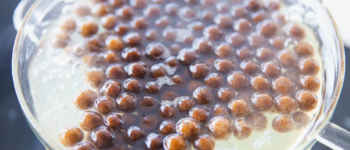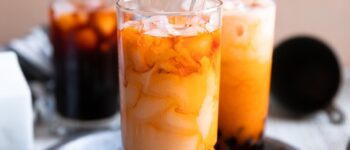“Milk tea” is a term used to describe any tea beverage that includes milk. It can be as essential as a small amount of milk added to a hot cup of tea, or it can be a more intricate concoction that incorporates different ingredients, such as the widely known bubble tea. Adding milk helps soften and enhance tea flavors significantly when reducing some of the bitter characteristics of black tea. Milk tea is enjoyed globally, either served hot or cold.
Fast Facts:
- Alternative Name: Bubble tea
- Temperature: Can be enjoyed hot or cold
- Primary Ingredient: Black tea
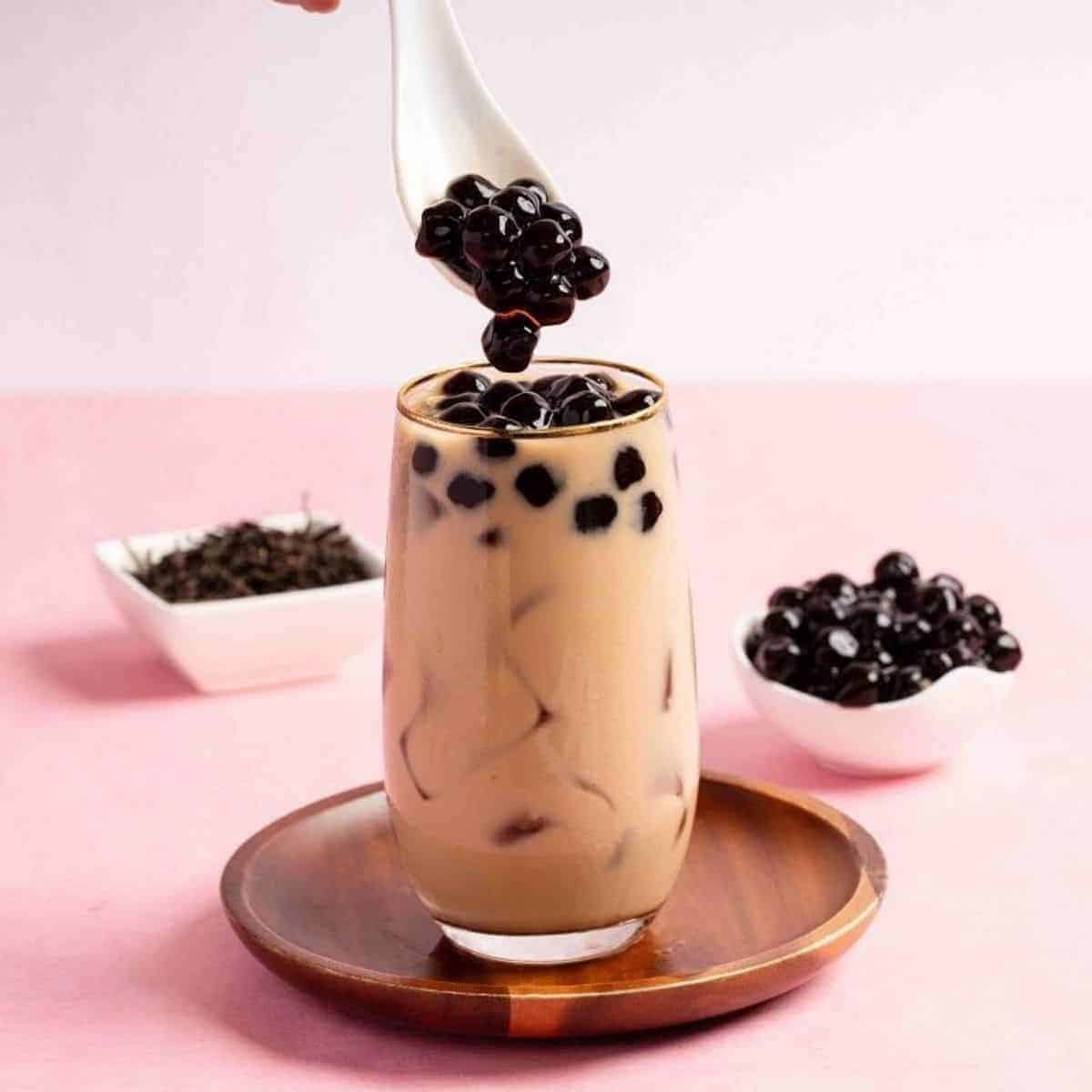
Types of Milk Tea
There are numerous variations of milk tea available, whether you prefer hot or cold. Many of these variations incorporate a range of spices and sugar to enhance the flavor.
Bubble Tea
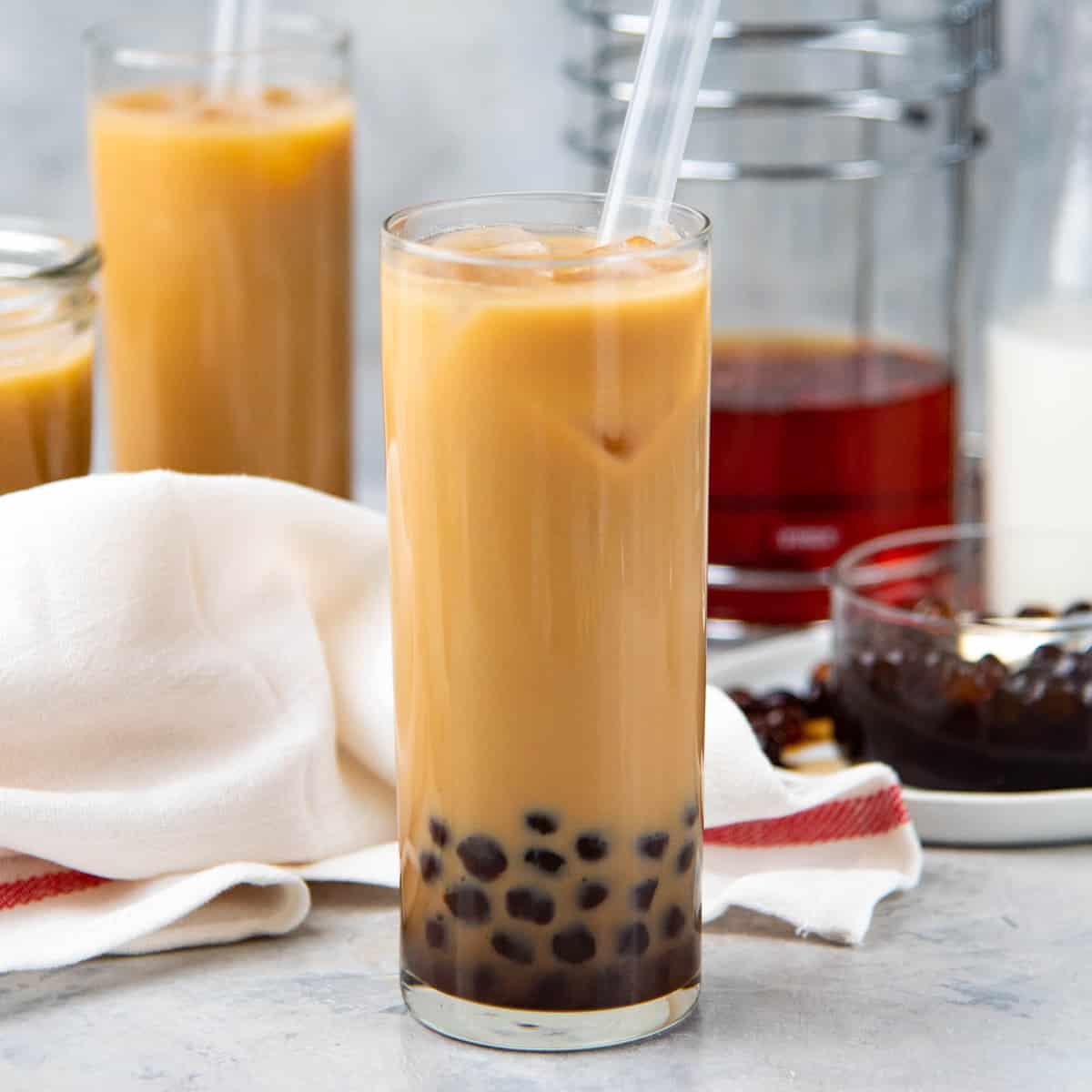
Originating in Taiwan during the 1980s, this fun and increasingly popular beverage is known for its unique tapioca pearls found at the bottom of the glass. It typically consists of black tea, milk, sweetener, and tapioca pearls. While there are a few classic preparations, there are countless versions of bubble tea.
Hong Kong Milk Tea
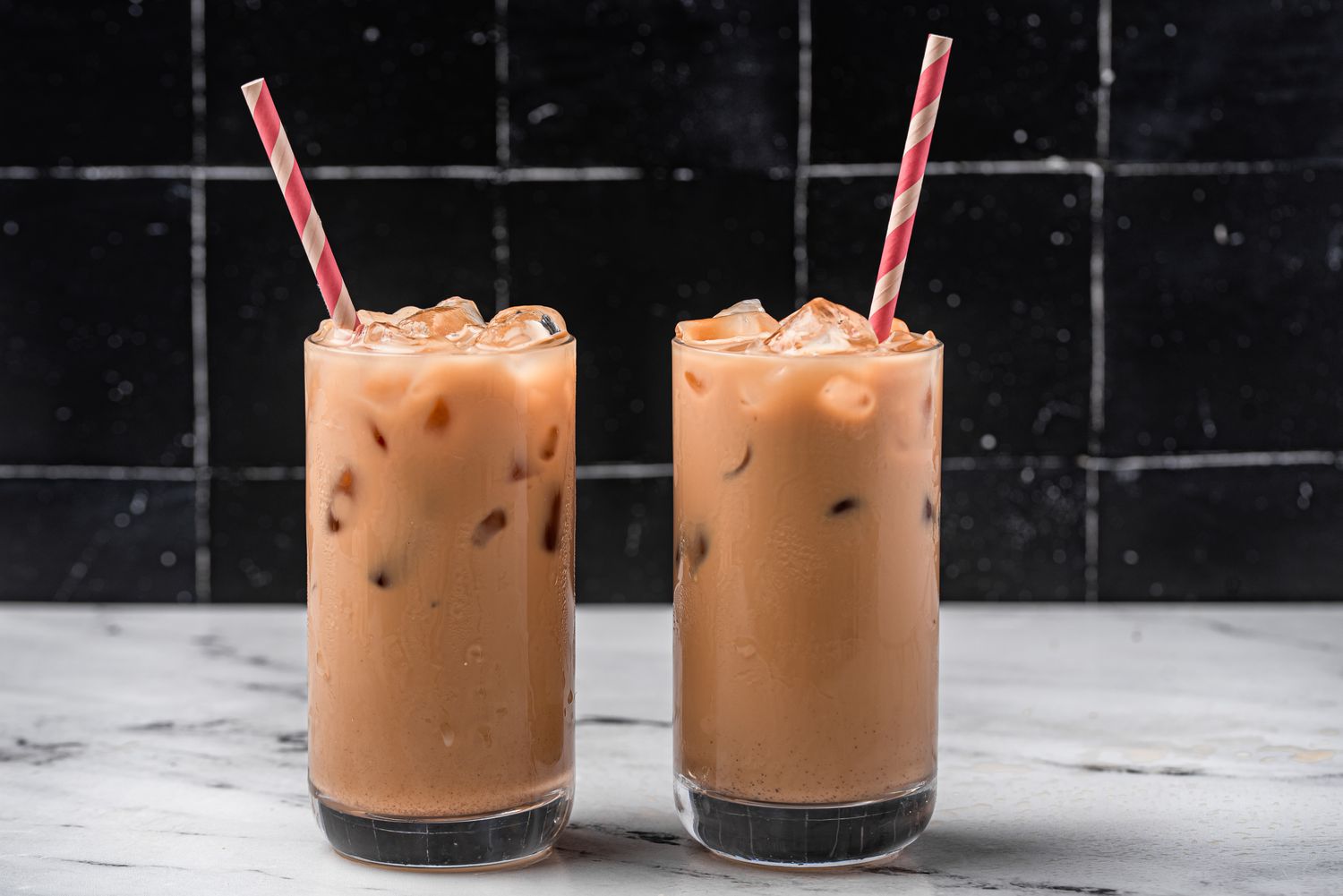
This is the most well-known type of milk tea made with evaporated milk. It is sometimes called “pantyhose tea” because it’s traditionally brewed using a cloth filter resembling pantyhose. For a sweeter taste, condensed milk can be used instead.
Tea Latte
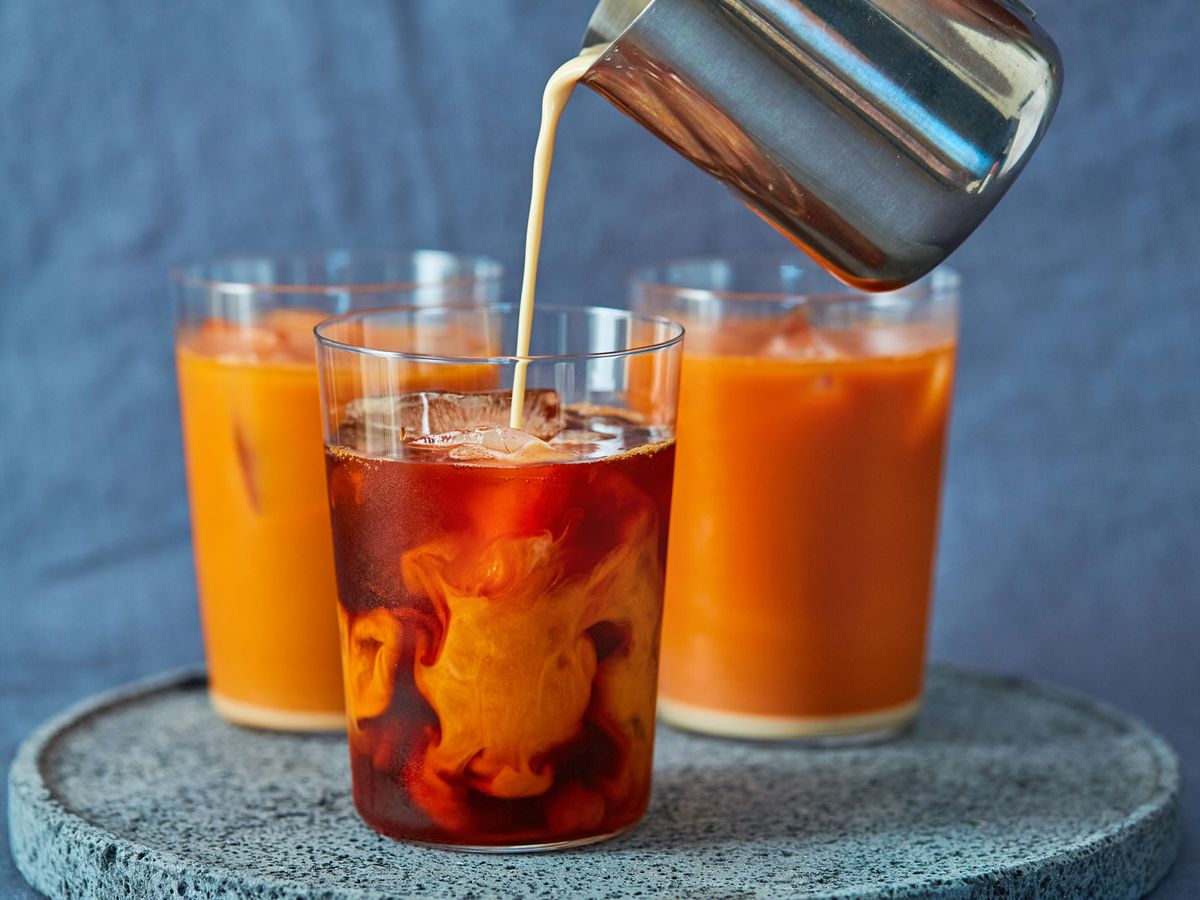
A popular option for non-coffee drinkers, this tea-based drink can be found in North America, parts of Europe, and other regions. Like coffee lattes, it can be served hot or over ice.
Thai Iced Tea
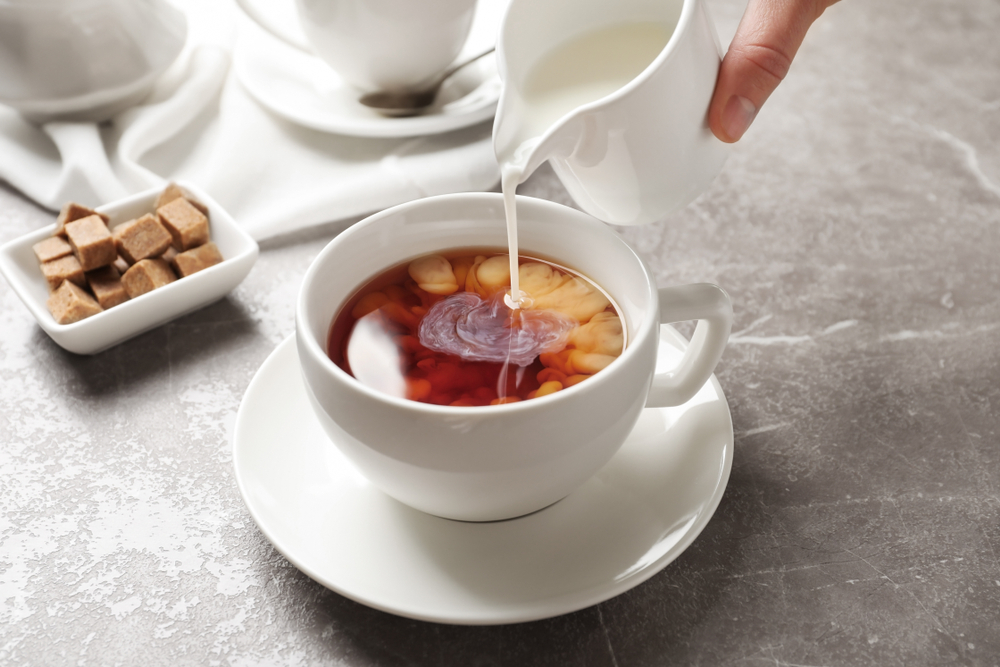
Often featured on menus at Thai restaurants in America, this refreshing cold beverage combines black tea with condensed and evaporated milk, sugar, and spices. It is available as a powdered mix but can be easily prepared from home.
Masala Chai
See more : Tea Towel vs Dish Towel? Find Out How They’re Different
This spiced Indian tea is widespread and may be made using powders or syrups. The traditional recipe involves simmering black tea with milk and various spices such as cinnamon, cloves, cardamom, and ginger before straining it into mugs for serving.
British Milk Tea
This ubiquitous British beverage is often enjoyed with a touch of milk. The traditional method involves adding the milk first and then pouring the tea over it; it is believed that this technique minimally affects the flavor of the tea.
Caffeine Content In Milk Tea
The caffeine content in milk tea varies depending on the tea used, typically a variant of black tea. For an 8-ounce cup size, chai tea contains around 60 to 120 milligrams of caffeine, while Assam black tea has approximately 80 milligrams, and Darjeeling tea has about 50 milligrams. However, it is essential to note that when milk is added to a cup of tea, the amount consumed is reduced, resulting in lower caffeine intake.
What Is Milk Tea?
Milk tea is tea with milk added. It gives the tea a smoother flavor and adds a slight sweetness. This way of serving tea is popular in many parts of the world and offers a simple way to change your usual cup of tea.
In certain regions, milk tea is considered the default type of tea. This is especially true in some parts of India, where “tea” typically refers to milk tea. Tea without milk is called “black tea” or “tea without milk.” Milk tea is also commonly enjoyed in England, Ireland, Scotland, Canada, Sri Lanka, and Hong Kong.
However, milk tea can also refer to hot and cold drink recipes that combine tea with different types of milk (regular, condensed, or evaporated) and various spices. Different countries have traditional versions of these recipes, which have gained popularity in America.
2 Health Benefits of Milk Tea
Black tea is one of the most commonly used varieties of milk tea, although other tea types can also be used.
Boosts Immune System
Black tea is considered one of the healthiest types of tea to consume. It is rich in antioxidants, which promote general well-being and help reduce the chances of developing chronic diseases. Additionally, black tea possesses polyphenols and antimicrobial properties that are advantageous for digestive health, and certain studies suggest that polyphenols may aid in combating cancer cells. Moreover, black tea has demonstrated stress-reducing qualities and can boost energy levels.
Aids Nutrition
Milk offers numerous health advantages due to its composition of nine essential nutrients, such as calcium, vitamin D, protein, vitamin B12, and potassium. These vitamins and minerals make milk nutritious, requiring only a tiny quantity to enjoy its benefits.
Uses
When milk is added to tea, it creates a milder and less bitter taste. This is because the milk combines with certain bitter chemical compounds in tea while masking some of the tea’s flavors. Intense black and Assam teas from India are often served with milk to offset the bitterness. Assam milk tea is also a common choice for British afternoon tea.
However, it’s important to note that some bitter compounds in tea offer health benefits. Therefore, if you drink tea primarily for its health advantages, opting for tea without milk would be preferable.
How to Drink Milk Tea
There are no strict guidelines or recommendations regarding how much milk to add to a specific tea. While most teas do not require a large quantity of milk, the ideal amount depends on personal preference and the type of tea being brewed. Adding a splash or a tablespoon of milk is expected as a general starting point. After stirring and tasting the tea, additional milk can be added, if desired, until it reaches the preferred taste.
See more : The Secrets of Bubble Tea Bubbles
In terms of milk tea recipes, some call for a significant amount of milk. For example, homemade masala chai typically uses equal milk and water.
Many milk teas can be prepared using dairy substitutes such as soy, almond, or rice milk. Although coconut milk may have more limited compatibility, it can create a delicious beverage paired with the proper tea.
Buying and Storing Milk Tea
Pre-packaged milk tea is readily available online or at specialty Asian markets. Look out for “royal milk tea,” sold in cans or packets in an “instant” form made with powdered milk. Alternatively, black milk tea powder, the same ingredient used in bubble tea shops, can also be found. These powders and cans can be conveniently stored in the pantry.
FAQs
How much caffeine is milk tea?
Taiwanese milk or bubble tea typically contains caffeine levels ranging from 100 to 160 mg. Bubble tea generally has a much lower caffeine content than coffee. A typical serving of bubble tea contains approximately half the caffeine in a standard cup of coffee.
Does milk tea boba have caffeine?
In summary, on average, a cup of boba tea contains around 50 mg of caffeine. The amount of caffeine in each drink can vary between 20 and 80 mg, depending on the type of tea used. Additionally, there are caffeine-free options available such as Taro tea.
Are any milk teas caffeine free?
OKTEA offers a delightful caffeine-free Rooibos Milk Tea Kit featuring convenient servings and three simple ingredients. Made with 100% South African Rooibos tea and New Zealand milk powder, OKTEA prioritizes using uncomplicated yet top-notch ingredients to enhance the richness of flavors.
How much caffeine is in Thai milk tea?
A high-quality Thai tea can contain caffeine ranging from 20 to 60 mg, depending on the preparation method. It’s important to note that Thai tea’s whole, condensed, or evaporated milk does not contribute any additional caffeine.
Does Hong Kong milk tea have caffeine?
Hong Kong Milk Tea, also called pantyhose tea, silk stocking tea, or nai-cha in Chinese, combines black tea with sweetened condensed or evaporated milk. It has a relatively high caffeine content. Due to its robust blend of black and red tea, a single cup of this drink contains an amount of caffeine equivalent to that found in a cup of coffee.
Does Japanese milk tea have caffeine?
When using a traditional black tea base to make Hokkaido milk tea, the resulting beverage will have a significant caffeine content, approximately half the amount in a cup of coffee.
Does rice milk tea have caffeine?
With lower caffeine content, a cup of Genmaicha contains approximately 10-15mg of caffeine, whereas a cup of green tea typically has around 30mg. The reduced caffeine levels in Genmaicha are attributed to its composition, which includes a significant amount of brown rice alongside the tea leaves.
Does matcha milk have caffeine?
This implies that a cup of matcha milk can contain 75.6 to 177.6 milligrams of caffeine. Whether you prepare matcha green tea using hot water or milk does not impact the caffeine content, but the quantity of matcha powder used certainly does affect it.
Does ice milk tea have caffeine?
Yes, iced tea can contain caffeine; however, the amount of caffeine present varies depending on the type of tea utilized. Traditional black teas like Darjeeling or Assam, derived from the leaves of the Camellia sinensis plant, naturally contain caffeine…
Is Jasmine milk tea caffeine free?
Due to its tea base, jasmine milk tea generally contains caffeine. However, the precise amount of caffeine in each cup may vary depending on factors such as the type of tea and the brewing strength. A cup of jasmine milk tea is estimated to contain between 30 and 60 mg of caffeine.
Nigel Gildon editor:Nigel Gildon is the editor of Chef Wayne’s Big Mamou: Chef Wayne’s Big Mamou. He has worked in the publishing industry for many years and has a passion for helping new authors get their work into the hands of readers. 63 Liberty Street * Springfield, MA 01003


